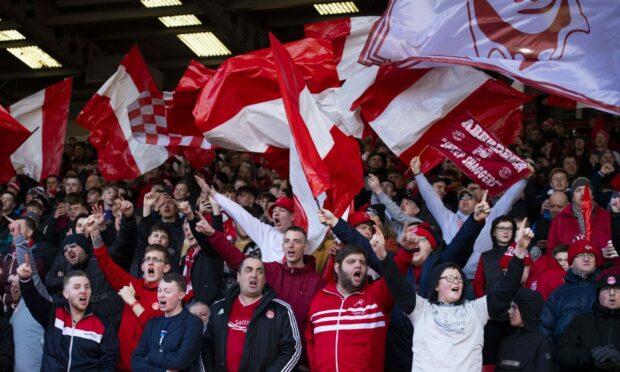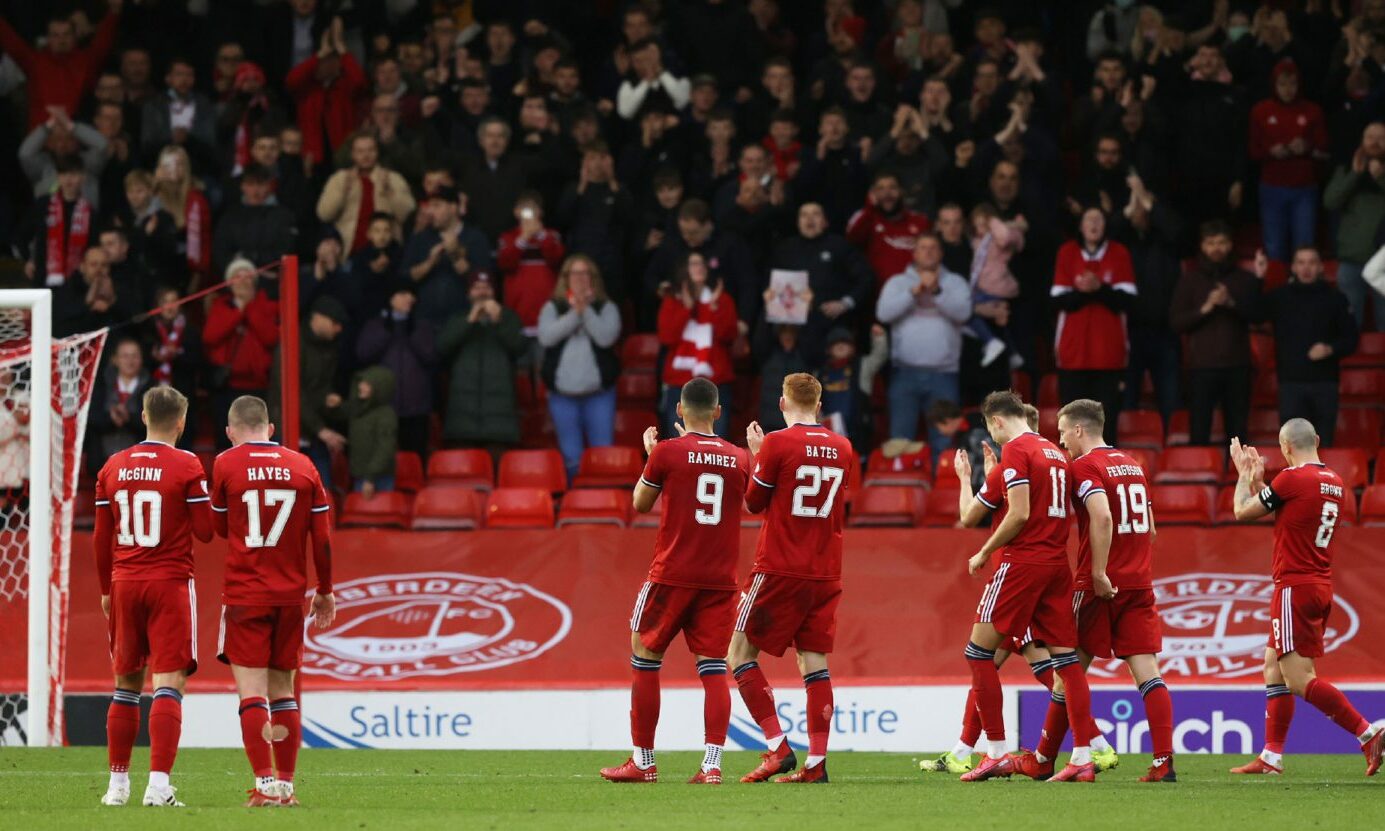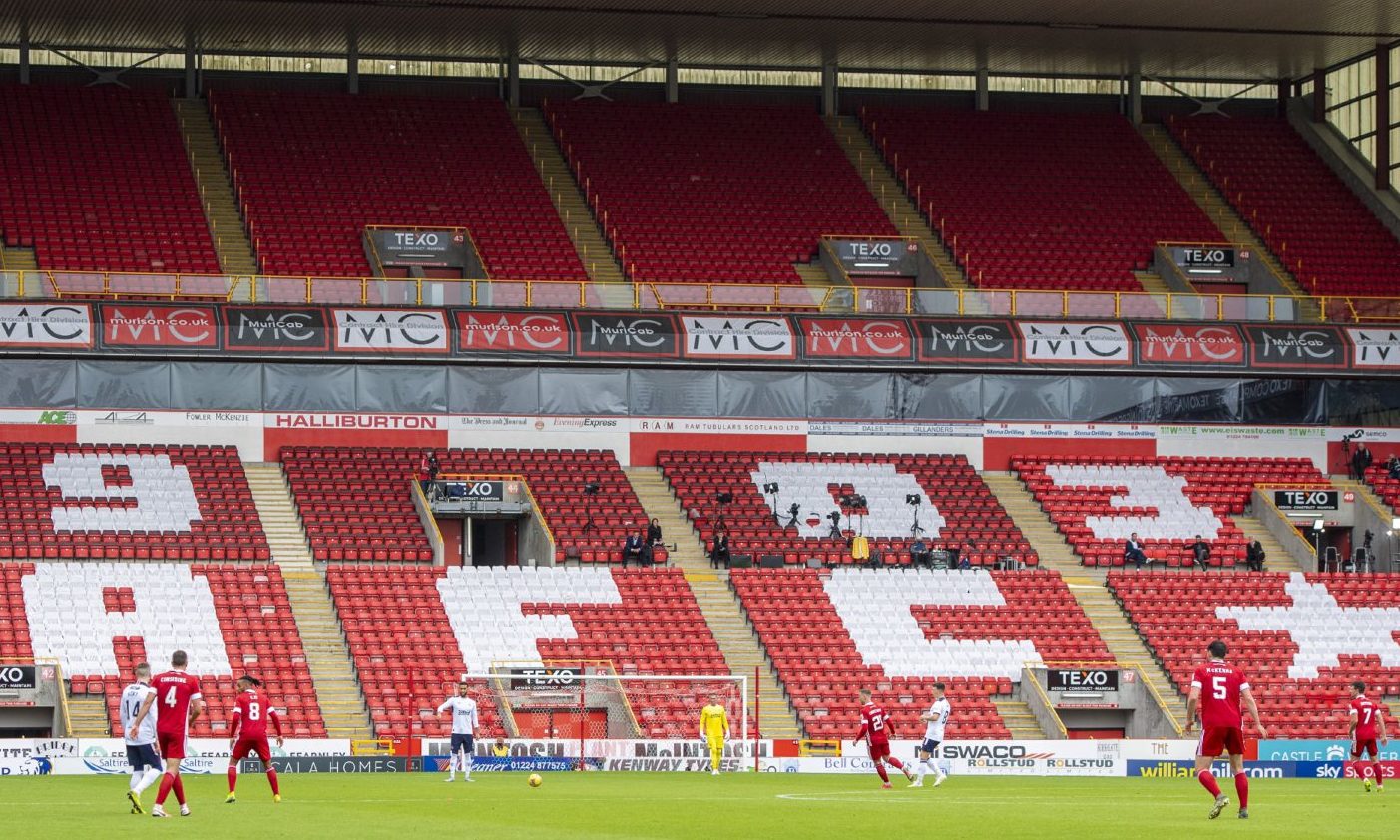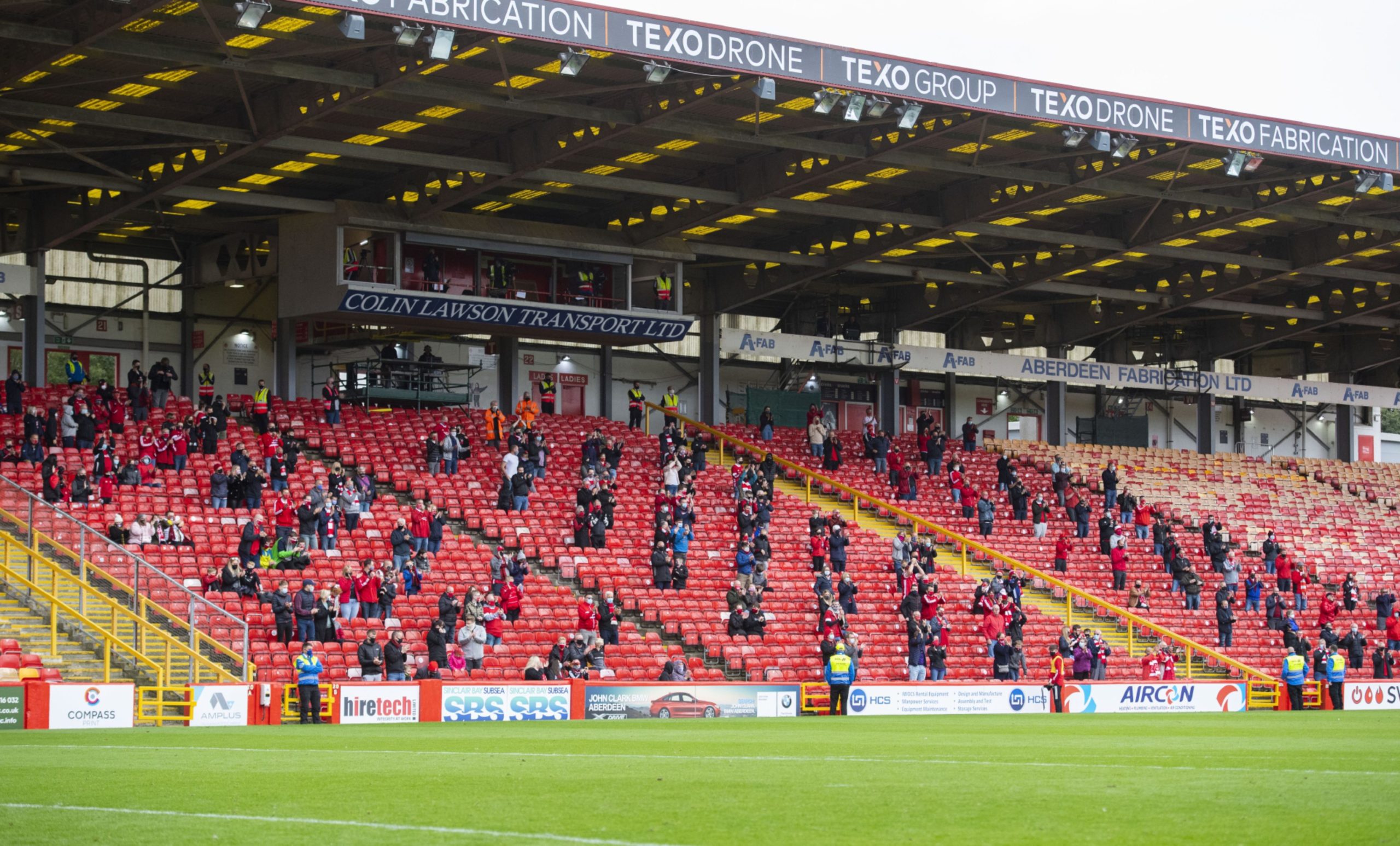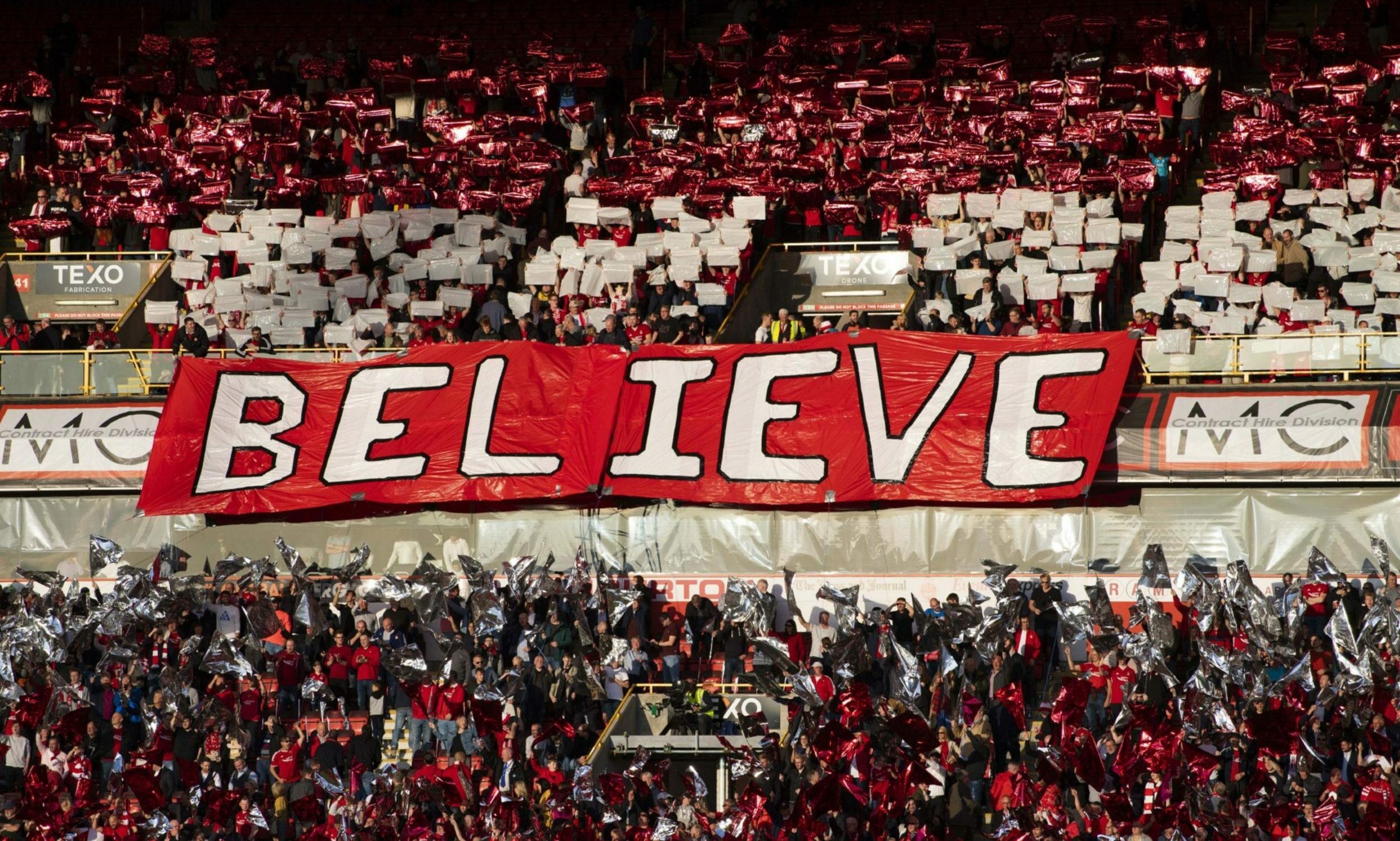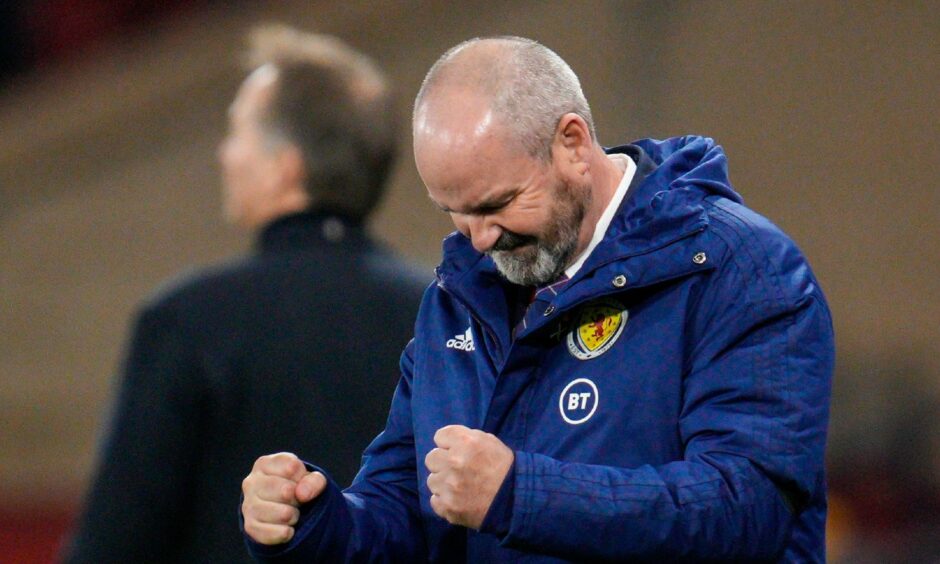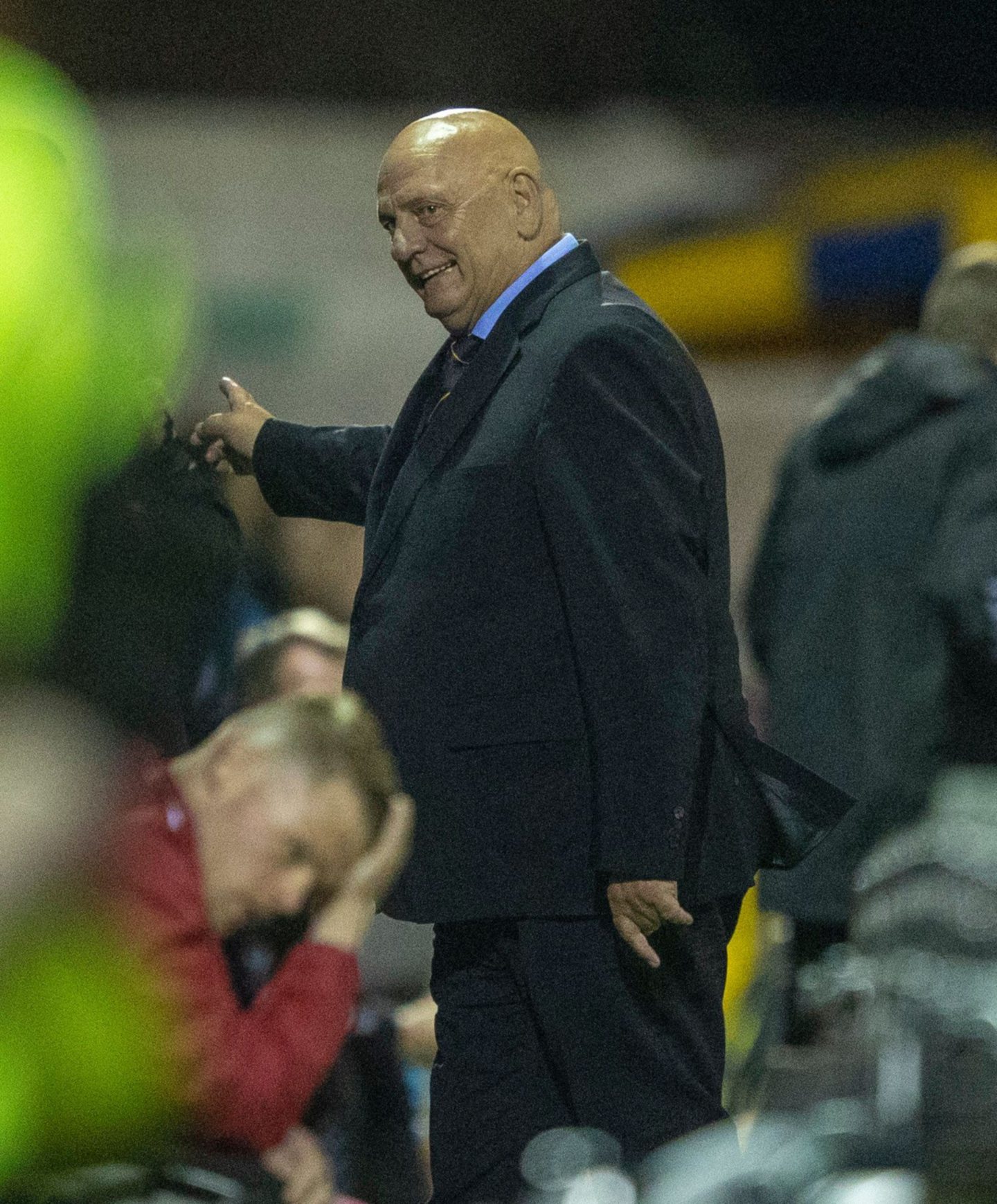The Scottish Premiership should press pause and go into a winter break from Boxing Day to combat the Omicron variant.
First Minister Nicola Sturgeon has confirmed outdoor events will be limited to 500 people from December 26.
Premiership games with a maximum of only 500 fans is not a viable option.
It will only pile more misery on clubs already crippled by the financial impact of the coronavirus pandemic.
The Premiership has a near three-week circuit breaker with the winter break planned from January 3.
Move it forward to Boxing Day.
There’s no sense playing what are effectively closed door games for three weeks before then shutting down for a winter break.
Instigating the winter break now is the only logical proposal – but sometimes logic and Scottish football do not go hand in hand.
Hopefully we can restart the league in January with crowds again, although with rapidly rising numbers that could be a forlorn and futile hope.
As numbers accelerate at an alarming rate, it seemed just a matter of time before large crowds would be cancelled.
It was coming. It was just a matter of putting everyone out of their misery by confirming when and for how long.
We know when – Boxing Day.
How long? That remains uncertain. The recently announced restrictions are for three weeks initially.
However, National Clinical Director Jason Leitch this week said models suggested a late January or early February peak and a sharp rise in deaths and hospital admissions.
So it appears unlikely the restrictions on crowd numbers will be lifted after three weeks.
One thing is certain though – Scottish clubs will again suffer the financial impact of the coronavirus pandemic.
Pittodrie was set to be packed for Dundee on Boxing Day and Rangers on December 29.
Now it will be virtually empty. That is a huge financial hit.
The Mobius strip of bleak uncertainty continues as we are doomed to be locked in a loop of misery and restrictions.
If these games go ahead in all-but-empty stadiums, and the period is longer than planned, the Scottish Government must provide financial assistance for clubs.
Scottish football clubs cannot afford another extended spell without any income from supporters and corporate hospitality.
The Scottish Government received an extra £440m from the UK treasury to help negotiate the current Omicron crisis.
It doesn’t seem like a lot to help negotiate a major crisis. However, it is important some of that is directed towards football clubs.
With clubs there has to be the consideration of their role within the community and the employment they provide outwith the playing staff.
Football clubs are also fundamental to the mental health of many people, something particularly relevant in a time of great concern and fear for many.
Aberdeen recently announced operating losses of £5.19m during the 2020/21 financial year as closed-door football resulted in turnover dropping by £3.26m.
With crowds finally returning this season, the hope was that clubs and football could begin to slowly recover from that disastrous year.
Last year the Scottish Government eventually provided a package of low interest loans and grants for football clubs.
In the face of a predicted sharp rise in deaths, the plight of football obviously pales in comparison.
However, it should not be forgotten by the Scottish Government.
Scotland’s Nations League target
Scotland have been handed a golden opportunity to step up to Group A in the UEFA Nations League next year.
Steve Clarke’s side landed Ukraine, Republic of Ireland and Armenia in Group B.
The nature of the Nations League is that teams drawn together are perceived as being of around the same standard.
However, Scotland are a team on the up and are more than capable of topping this group.
Landing Ukraine, the nation the Scots face in the World Cup play-off semi-final next March, adds an extra bit of spice.
However, the Scots have winning momentum and have the quality of player and manager capable of winning the group.
The manner of the 2-0 defeat of World Cup qualifying group winners Denmark last month gives me immense hope for 2022.
Not just that Scotland can top their UEFA Nations Group – but also qualify for the World Cup finals in Qatar.
The Scots were superb against Denmark to extend a winning streak to six games.
If they can keep that level of performance and belief, 2022 can be a memorable year for Clarke and the Scots.
Anyone doubting the validity of the Nations League need only look at how it opened up an alternative route to the Euro 2020 finals for Scotland.
Without the Nations League, that long tournament drought, which dated back to 1998, would still be ongoing.
Thankfully it finally ended this summer – thanks to the Nations League play-offs and a memorable penalty shoot-out defeat of Serbia.
Arbroath genuine title contenders
Part-time Arbroath’s magnificent rise to the top of the Championship is no flash in the pan.
Dick Campbell’s side are genuine title contenders.
That must be panicking full-time clubs who have invested in the bid for the title and promotion.
Arbroath are 18 games into the league season and have lost just twice – the fewest defeats in the Championship.
Campbell’s side have also scored the most goals.
They are the feel-good story of the Scottish season so far – and it can continue all the way to May.
Arbroath going on to win the Championship and promotion to the top flight is not a pipe dream – it can happen and concerned full-time clubs know it.
